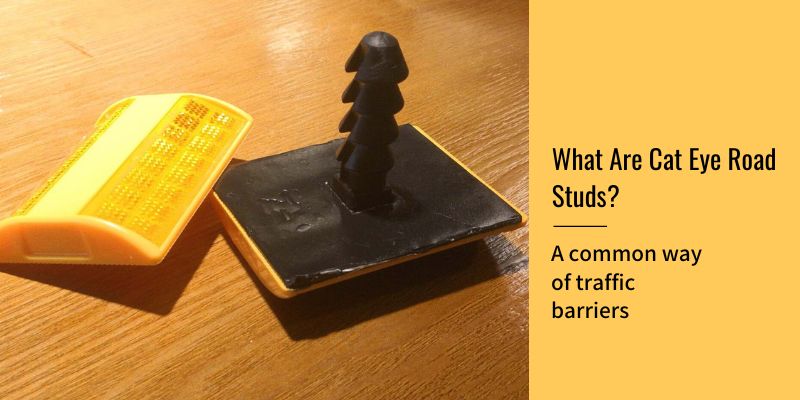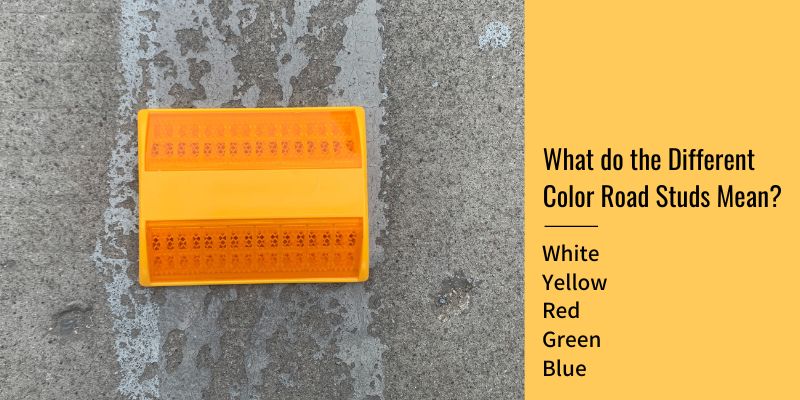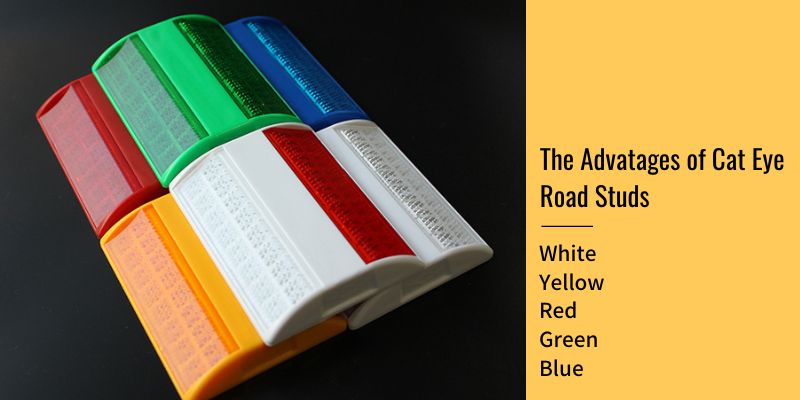
Cat's eyes road studs are reflective road studs, a common way of traffic barriers, used to guide people in the right direction, prevent speeding and traffic accidents. They help illuminate the road boundary for drivers at night.
Road studs are no more than 25mm high and are most often seen on roads without street lighting or on extremely busy highways, including motorways, country roads and rural A-roads.
The Working Principle of Cat Eye Road Studs
They work by bouncing light back toward its source (like your headlights) through a domed glass tube called a retroreflector or reflector. It mainly relies on reflective materials to reflect the light from headlights to serve as a warning.
What Are Cats Eyes Road Studs Made From?
Reflective road studs are usually made of plastic, glass or ceramic and come in different shapes and sizes. They are designed to reflect light from vehicles, providing a clearly visible line on the road for drivers to follow.
The reflective material used in road studs helps make them highly visible from a distance, even in low light conditions. Cats eyes are designed to be durable and long-lasting, but will not damage tires while driving.
Their main materials include:
Aluminum: The reflective "cat's eye" itself is located within the aluminum casting, which is perfect for placement in the center of the road. There are also aluminum road studs that use reflective sheets mounted on both sides.
Plastic: More cost-effective, but less durable.
Glass: A dome of safety glass sits above the road surface and reflects light in all directions, achieving 360-degree reflection.
What do the Different Color Road Studs Mean?
Road studs are commonly used with traffic markings. Cat eye road studs can be divided into different colors according to the different functions of traffic markings. The color of road studs is an important factor in road safety because it helps indicate the type or location of the road and provides important information to drivers.
There are generally 5 colors of road studs, white, yellow, green, red and blue.
Different countries have different regulations on the meaning of road stud colors. Please refer to the following table:
|
Color
|
China
|
USA
|
UK
|
Australia
|
India
|
|
White
|
Separates lanes in the same direction
|
Separates lanes in the same direction
|
Separates lanes in the same direction
|
Separates lanes in the same direction
|
Separates lanes in the same direction
|
|
Yellow
|
Separates opposite lanes, warns of oncoming traffic
|
Separates opposite lanes, marks left-side lane
|
Marks road edges or temporary no-stopping zones
|
Separates opposite lanes or no-overtake zones
|
Separates opposite lanes or dangerous areas
|
|
Red
|
Prohibits entry or marks dangerous zones
|
Prohibits entry or marks wrong-way lanes
|
Marks central reservation or restricted areas
|
Prohibits entry or marks hazardous areas
|
Prohibits entry or dangerous zones
|
|
Green
|
Allows temporary parking or traffic guidance
|
Marks parking areas or lane start/endpoint
|
Marks service areas or entrances/exits
|
Not widely used
|
Marks permitted parking or traffic zones
|
|
Blue
|
Marks disabled parking or special zones
|
Marks fire hydrant locations
|
Marks emergency stopping lanes on highways
|
Marks fire hydrant locations
|
Not widely used
|
Although the use of white and yellow road studs is relatively consistent in most countries (white is used to separate the same direction, and yellow is used to separate the opposite direction), the meanings of red, green, and blue road studs vary from country to country. Therefore, drivers and traffic equipment purchasers should pay special attention to local traffic regulations in multinational projects to ensure that the color of road studs complies with regulations to improve road safety and compliance.
The Advatages of Cat Eye Road Studs
▶Enhances road safety
▶Helps to show road boundaries in areas without street lighting
▶Also helps in bad weather such as heavy rain as water may obscure the line markings.
▶Driving over them acts as a warning to drivers that they are leaving the road/lane
▶They do not require an external power source to work
▶They are durable
▶They do not damage tires when speeding
▶Installing them is cheaper than setting up and running street lighting

.jpg)

